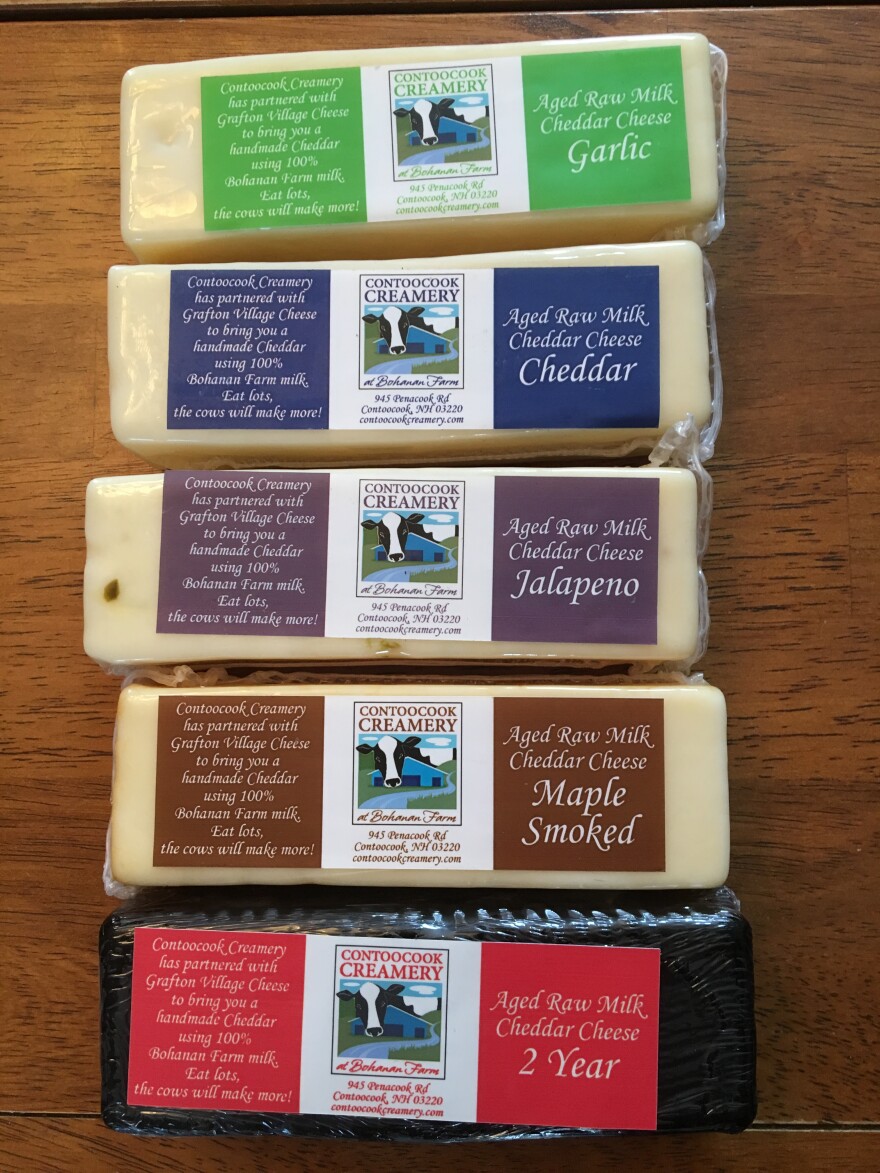Some in New Hampshire’s struggling dairy industry have had to adapt to survive. One old farm, though, has found a way to keep the family business going.
There’s a thumbtack stuck in the dining room door post at Bohanan Farm in Contoocook. Someone in Heather Robertson’s family put it there, at the high water mark, during the 1936 flood that drowned New England. But only after every last cow had been moved to higher ground.
"It kinda says a lot about farmers," says Jamie, "and how they feel about – they moved their animals to safety and then they came back and slept in the house."
Jamie Robertson and his wife, Heather, bought the farm from Heather’s dad in 2009. Heather’s family has been farming the land for 110 years, with each generation adding more cows, selling more milk. But when the Robertson’s three sons expressed interest in joining the business, they knew something big had to change.
"To be able to be able to milk the number of cows to sustain four families," Jamie explains, "we didn’t feel there was a land base. ‘Cause we’d have to milk 800-1200 cows."
The Robertsons sell their milk wholesale to the Cabot Cooperative. But that wasn’t going to be enough to make ends meet. Jamie and Heather’s son, Nate, says they sat down and made a game plan.
"It was a pretty black and white choice of – we need to do something else, or we aren’t gonna farm," Nate says, "Everybody can’t come back and farm."
In 2011, the Robertsons started Contoocook Creamery at Bohanan Farm. They don’t sell their product raw – that’s a liability they’d rather not risk -- but they do make cheeses, butter, half-and-half, regular, and flavored milks.

"And we put it in glass, ‘cause we think it tastes a lot better coming out of glass," says Jamie, "It doesn’t taste like a plastic jug."
They sell their products in Hannafords, and in smaller markets across the state. Jamie says that initially, they really struggled as they were building the new businesses. But his niece and marketing manager, Meghan Wilson, says that they seem to have found their niche.
"You know, you go to these bigger grocery stores, and there’s a huge, huge case of cheese," Meghan says "Like, dozens and dozens of different varieties, and you’re just this one little New Hampshire farm that’s just, like, trying to get in there. Like, pick me! And you know. And then people buy yours. And it's like, oh!"
The dairy industry is still in rough shape in New Hampshire, and the Robertsons haven’t been spared the difficulty of that. They only recently replaced a tractor that was built with West German steel, for context. And Jamie says it’s pretty much hand-to-mouth these days. But they’re pushing forward, no matter what.
"We don’t really want to be the generation that it stops," Jamie explains, "You know, the boys are the fifth generation. And I think, um… that’s a real double-edged sword. It’s really neat to be able to feel that you’re doing – there’s so few industries today that work that way. But it’s also a huge weight to keep it alive."
But Jamie says that weight isn’t so bad when he thinks about the heritage they’re preserving.

"We have a rock up in the pasture that the Indians sat on to grind things, there’s grinding holds in it," Jamie smiles, "And that’s pretty neat. You know, they’ve been farming here since people were here. And we’re doing it different. But we’re still producing food for people in the local area. And that – on bad days, that’s what pulls us through."
The Robertsons say the next step for this land is to build a processing plant, so they can bottle on-site. In 6-12 months, if the creek don’t rise.







